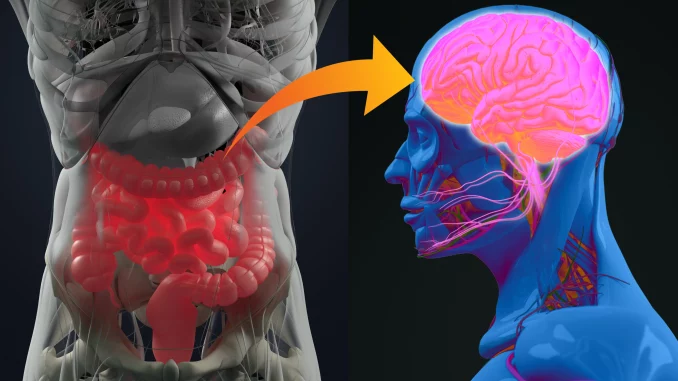
The gut-brain connection is a fascinating and complex relationship that has gained significant attention in recent years. This bidirectional communication system between the gastrointestinal tract and the brain plays a crucial role in overall health, particularly mental well-being. In this article, we will explore the science behind the gut-brain axis, how gut health impacts mental health, and practical steps to improve gut health for better mental well-being.
What is the Gut-Brain Axis?
The gut-brain axis refers to the intricate network of communication between the central nervous system (CNS) and the enteric nervous system (ENS), which governs the function of the gastrointestinal tract. This connection is facilitated by various pathways, including the vagus nerve, hormones, and the immune system. The gut is often referred to as the “second brain” due to its extensive network of neurons and its ability to function independently of the CNS.
The Role of the Gut Microbiome
The gut microbiome, a collection of trillions of microorganisms residing in the digestive tract, plays a pivotal role in the gut-brain axis. These microorganisms, including bacteria, viruses, and fungi, influence various bodily functions, including digestion, immune response, and even mental health. The balance of these microorganisms is crucial for maintaining overall health.
- Neurotransmitter Production: The gut microbiome is involved in the production of neurotransmitters such as serotonin, dopamine, and gamma-aminobutyric acid (GABA). These chemicals are essential for regulating mood, anxiety, and stress. Interestingly, about 90% of serotonin, a key neurotransmitter associated with feelings of well-being, is produced in the gut.
- Immune System Modulation: The gut microbiome interacts with the immune system, influencing inflammation levels in the body. Chronic inflammation has been linked to various mental health disorders, including depression and anxiety.
- Gut Barrier Function: A healthy gut lining prevents harmful substances from entering the bloodstream. When the gut barrier is compromised, a condition known as “leaky gut,” toxins and bacteria can enter the bloodstream, triggering inflammation and potentially affecting brain function.
How Gut Health Affects Mental Health
Research has shown a strong correlation between gut health and mental health. Here are some ways in which the gut microbiome influences mental well-being:
- Depression and Anxiety: Studies have found that individuals with depression and anxiety often have an imbalance in their gut microbiome, known as dysbiosis. This imbalance can affect neurotransmitter production and immune function, contributing to mental health issues.
- Stress Response: The gut microbiome plays a role in regulating the body’s response to stress. Chronic stress can alter the composition of the gut microbiome, leading to a vicious cycle of stress and gut health deterioration.
- Cognitive Function: Emerging research suggests that the gut microbiome may influence cognitive functions such as memory and learning. Dysbiosis has been linked to neurodegenerative diseases like Alzheimer’s and Parkinson’s.
- Autism Spectrum Disorders (ASD): Some studies have found a connection between gut health and autism. Children with ASD often have gastrointestinal issues, and improving gut health has shown promise in alleviating some behavioral symptoms.
Practical Steps to Improve Gut Health
Improving gut health can have a profound impact on mental well-being. Here are some practical steps to support a healthy gut microbiome:
- Dietary Changes: A diet rich in fiber, fruits, vegetables, and fermented foods can promote a healthy gut microbiome. Foods like yogurt, kefir, sauerkraut, and kimchi are excellent sources of probiotics, which are beneficial bacteria.
- Probiotic Supplements: Probiotic supplements can help restore the balance of gut bacteria, especially after a course of antibiotics or during periods of stress.
- Prebiotics: Prebiotics are non-digestible fibers that feed beneficial gut bacteria. Foods like garlic, onions, bananas, and asparagus are rich in prebiotics.
- Reduce Stress: Chronic stress can negatively impact gut health. Practices like meditation, yoga, and deep breathing exercises can help manage stress levels.
- Adequate Sleep: Poor sleep can disrupt the gut microbiome. Aim for 7-9 hours of quality sleep per night to support gut health.
- Regular Exercise: Physical activity has been shown to positively influence the gut microbiome. Aim for at least 30 minutes of moderate exercise most days of the week.
- Avoid Antibiotics Unless Necessary: Antibiotics can disrupt the balance of gut bacteria. Use them only when prescribed by a healthcare professional.
The Future of Gut-Brain Research
The field of gut-brain research is still in its infancy, but the potential implications are vast. Future studies may lead to new treatments for mental health disorders based on modulating the gut microbiome. Personalized nutrition, tailored to an individual’s gut microbiome, could become a standard approach to improving mental well-being.
Conclusion
The gut-brain connection highlights the importance of gut health in maintaining mental well-being. By understanding and nurturing this relationship, we can take proactive steps to improve both our physical and mental health. A balanced diet, stress management, and a healthy lifestyle are key to supporting a thriving gut microbiome and, in turn, a healthy mind.

Leave a Reply